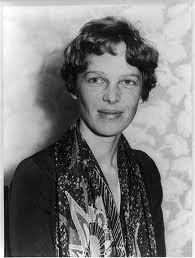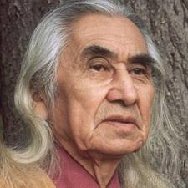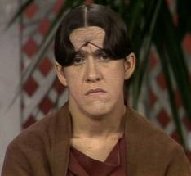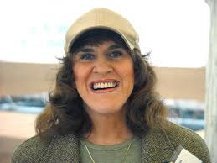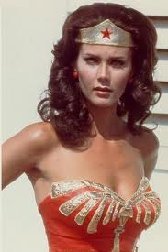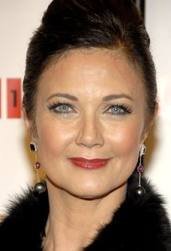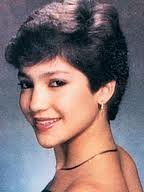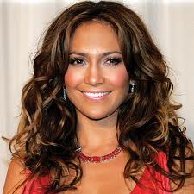Alfredo James Pacino (/pəˈtʃiːnoʊ/ puh-CHEE-noh; Italian: [paˈtʃiːno]; born April 25, 1940) is an American actor. Considered one of the greatest and most influential actors of the 20th century, Pacino has received numerous accolades: including an Academy Award, two Tony Awards, and two Primetime Emmy Awards, making him one of the few performers to have achieved the Triple Crown of Acting. He has also been honored with the Cecil B. DeMille Award in 2001, the AFI Life Achievement Award in 2007, the National Medal of Arts in 2011, and the Kennedy Center Honors in 2016.
A method actor, Pacino studied at HB Studio and the Actors Studio, where he was taught by Charlie Laughton and Lee Strasberg. Pacino went on to receive the Academy Award for Best Actor for his role in Scent of a Woman (1992). His other Oscar-nominated roles include The Godfather (1972), Serpico (1973), The Godfather Part II (1974), Dog Day Afternoon (1975), and ...And Justice for All (1979), Dick Tracy (1990), Glengarry Glen Ross (1992), and The Irishman (2019). Other notable films include The Panic in Needle Park (1971), Author! Author! (1982), Scarface (1983), The Godfather Part III (1990), Carlito's Way (1993), Heat (1995), Donnie Brasco (1997), The Devil's Advocate (1997), Any Given Sunday (1999), The Insider (1999), Insomnia (2002), Ocean's Thirteen (2007), Jack and Jill (2011), Once Upon a Time in Hollywood (2019) and House of Gucci (2021).
On television, Pacino has acted in several productions for HBO, including Angels in America (2003) and the Jack Kevorkian biopic You Don't Know Jack (2010), winning a Primetime Emmy Award for Outstanding Lead Actor in a Miniseries or a Movie for each. Pacino starred in the Amazon Video series Hunters (2020–2023). He has also had an extensive career on stage. He is a two-time Tony Award winner, winning Best Featured Actor in a Play in Does a Tiger Wear a Necktie? (1969) and Best Actor in a Play for The Basic Training of Pavlo Hummel (1977).
Pacino made his directing debut with the documentary Looking for Richard (1996); Pacino had played the lead role on stage in 1977. He has also acted as Shylock in a 2004 feature film adaptation and 2010 stage production of The Merchant of Venice. Pacino directed and starred in Chinese Coffee (2000), Wilde Salomé (2011), and Salomé (2013). Since 1994, he has been the joint president of the Actors Studio.
^1972 with James Caan
Alfredo James Pacino was born in the East Harlem neighborhood of Manhattan, New York City, on April 25, 1940, the only child of Sicilian Italian-American parents Rose (née Gerardi) and Salvatore Pacino. His parents divorced when he was two years old. He then moved with his mother to the South Bronx to live with her parents, Kate and James Gerardi, who were Italian emigrants from Corleone. Pacino's father was from San Fratello and moved to work as an insurance salesman and restaurateur in Covina, California.
Personal life
Pacino has four children. The eldest, Julie Marie (born October 16, 1989), is his daughter with acting coach Jan Tarrant. He has twins, son Anton James and daughter Olivia Rose (born January 25, 2001), with actress Beverly D'Angelo, with whom he had a relationship from 1997 until 2003. He has a son Roman (born June 15, 2023) with his producer girlfriend Noor Alfallah who is 54 years younger than him. Pacino, at age 83, is one of the oldest fathers on record. He has never been married.
Pacino had a relationship with his The Godfather Trilogy co-star Diane Keaton. Their on-again, off-again relationship ended after the filming of The Godfather Part III. Keaton said of Pacino, "Al was simply the most entertaining man... To me, that's, that is the most beautiful face. I think Warren [Beatty] was gorgeous, very pretty, but Al's face is like whoa. Killer, killer face." He has had relationships with Jill Clayburgh, Tuesday Weld, Marthe Keller, Veruschka von Lehndorff, Kathleen Quinlan, Lyndall Hobbs, and Penelope Ann Miller. Pacino had a ten-year relationship with Argentine actress Lucila Polak from 2008 to 2018.
Pacino has admitted to abusing drugs and alcohol early in his career, partly because he found his sudden fame after The Godfather difficult to cope with. He achieved sobriety in 1977.
If you want to read more, go here: https://en.wikipedia.org/wiki/Al_Pacino
1899 – Chief Dan George, Canadian actor (d. 1981)
1936 – Ruth Buzzi, American actress and comedian
1951 – Lynda Carter, American actress
1969 – Jennifer Lopez, American actress and singer
On July 24th, commemorate National Tequila Day with a little lime and salt. Mix up a Margarita, Paloma, or a Mamasita to celebrate the day! People have been making Tequila for centuries, and it was once known as mezcal wine.
In fact, Tequila is mezcal, but mezcal isn’t Tequila. That’s because Tequila is distilled from a specific type of agave plant. Also, the law protects its production. Take a sip, and we’ll travel into Tequila’s history.
Tequila History
It all started around the 16th century. Cortez arrived on the North American continent with his Spanish conquistadors. They didn’t care much for the fermented mezcal wine served to them. However, the Spanish introduced copper stills to the population. Enter the distilling process.
Now, our story takes us to Tequila, Jalisco, Mexico. Located in a valley west of Guadalajara in Jalisco, Mexico, the town made a name for themselves by distilling Blue Agave. Even though a variety of succulents in Mexico produce mezcal, only one delivers the nectar to distill Tequila. Blue Agave grows in the highland region. Indeed, the unique growing conditions contribute to a larger size and sweeter tasting agave. In contrast, agave grown in the lowland regions taste and smell more herbal.
In Mexico, the law protects the production of Tequila. The rule states Tequila is only Tequila if it is made within Jalisco. Additionally, the law limits production to regions in the states of Guanajuato, Michoacan, Nayarit, and Tamaulipas. However, the same ingredients distilled anywhere else cannot be labeled Tequila.
Interestingly, many names in the tequila business today were the very first commercial producers of Tequila. For example, José Antonio Cuervo held the first license for making the favored beverage. He kept a well-known company, too. Two other names include Don Cenobio Sauza and Félix López, whose businesses continue in some form today.
Equally enjoyed in cocktails such as the margarita or tequila sunrise, connoisseurs savor a good tequila like a good whiskey. As a result, savvy drinkers experience the smooth renaissance of Tequila. Surprisingly, it’s not the firewater they remember from their youth.





.jpg)



